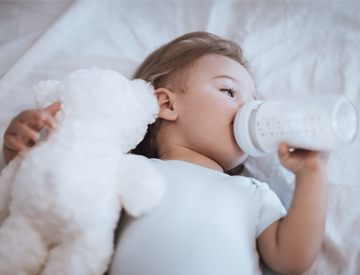
The Importance of Hygiene in Baby Care
Maintaining Proper hygiene is the foundation for baby care and vital to keeping them healthy and happy. Infants possess nascent immune systems, making them more vulnerable to infections and diseases. Maintaining good hygiene practices can greatly reduce the risk of health issues and create an environment for your little one to flourish. Discover the importance of maintaining hygiene in baby care and learn effective strategies for maintaining cleanliness.
The Role of Hygiene in Disease Prevention
Protecting a Developing Immune System: Newborns enter the world with immune systems that are still in the early stages of development, leaving them susceptible to infections. Implementing regular cleaning and hygiene practices is crucial for safeguarding against harmful bacteria, viruses, and other pathogens.
Minimizing the Risk of Common Infections: By maintaining proper hygiene, you can effectively ward off common infections like colds, flu, and gastrointestinal illnesses. Simple habits like regular handwashing and sanitizing baby items play a significant role in keeping your baby healthy.
Preventing Diaper Rash and Skin Irritations: Frequent diaper changes (every 5 hours) and meticulous cleansing of the diaper area are effective in preventing diaper rash and skin irritations. Choosing mild, fragrance-free products is essential for preserving your baby's delicate skin.
Essential Hygiene Practices in Baby Care
The Importance of Handwashing:
- Remember to always wash your hands thoroughly before handling your baby, particularly after using the bathroom, changing diapers, or handling pets.
- Remind older siblings and other family members about the importance of washing their hands before touching the baby.
Tips for Bathing Your Baby:
- It is important to give your newborn regular baths, but bathing them 2-3 times a week is enough until they start moving around more.
- Use mild, baby-specific soap and lukewarm water when bathing your baby. Make sure the bath area is clean and safe.
Tips For Maintaining Clean Diapers:
- Ensure regular diaper changes every 5 hours to prevent discomfort or diaper rash.
- Remember to clean the diaper area gently using baby wipes or a damp cloth, making sure it's completely dry before putting on a fresh diaper.
Tips for Cleaning Baby Bottles and Feeding Equipment:
- Remember to sterilize bottles, nipples, and pacifiers before using them for the first time and after each feeding.
- Make sure to clean your items thoroughly by using a bottle brush and hot, soapy water. If they are dishwasher-safe, you can also opt to clean them in the dishwasher.
Tidying Up Toys and Surfaces:
- Regularly clean and sanitize toys, especially the ones that your baby tends to put in their mouth. It's important to keep them germ-free and safe for your little one.
- Disinfect surfaces, such as changing tables and high chairs, by wiping them down with a baby-safe disinfectant.
Maintaining a Clean Environment:
- Make sure to maintain a clean and dust-free living area for your baby.
- Regularly wash your baby's bedding, clothing, and soft toys to keep them clean and free from allergens and bacteria’s.
Special Considerations for Newborn Hygiene
Taking Care of Baby's Umbilical Cord:
- Remember to maintain proper care of the umbilical cord stump until it naturally detaches.
- To ensure proper air circulation, it is recommended to fold the diaper below the stump rather than covering it completely.
Ear and Nose Cleaning:
- Remember to clean the outer part of your baby's ears using a damp cloth, but be careful not to insert anything into the ear canal.
- Remember to use a bulb syringe or nasal aspirator to gently clear any mucus from your baby's nose, if necessary.
Taking Care of Nails:
- Regularly trimming your baby's nails is essential for preventing scratching and infections.
- Use baby nail clippers or a soft nail file and do it when your baby is calm or asleep.
Essential Tips for Parents and Caregivers to Maintain Hygiene
Personal Hygiene:
- Remember to prioritize personal hygiene to keep your baby safe from germs.
- Make sure to dress in clean clothes and refrain from wearing any jewellery that may carry bacteria.
Managing Food and Feeding:
- Always wash your hands before preparing and handling your baby's food.
- Make sure to keep feeding areas and utensils clean and sanitized.
Importance of Cleanliness for Visitors:
- Kindly request that visitors wash their hands before holding or touching your baby.
- Minimize contact with people who are sick or have recently recovered from an illness.
In summary
It is vital to maintain proper hygiene when taking care of your baby to safeguard them against infections and promote their overall well-being. By integrating these hygiene practices into your everyday schedule, you can create a secure and nourishing environment for your baby to flourish. Always remember that practicing good hygiene habits is crucial for protecting your baby's health and promoting long-term well-being. It is always important to seek personalized advice and guidance from your paediatrician regarding the best hygiene practices for your child.